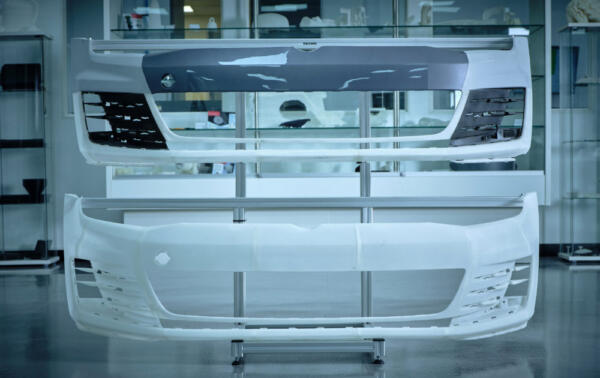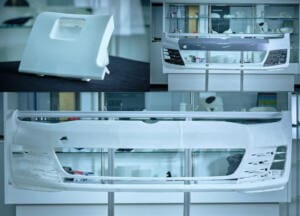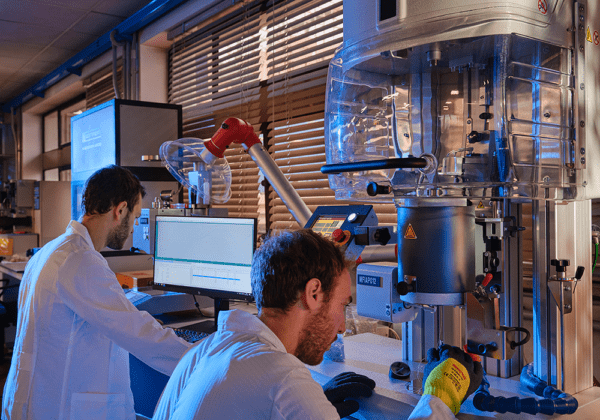
From Prototype to Production: Polypropylene Revolutionises VW’s Manufacturing Process
Ricoh 3D has enabled Volkswagen to produce car part prototypes using the end-use material – an innovation not previously possible for the automotive giant. Learn how VW embraced additive manufacturing in this case study.
The Problem
Prior to embracing additive manufacturing, The Plastic Business Segment (a division belonging to Volkwagen Group Components) had no ability to test component parts in an end-use material – instead of having to rely on prototyping with materials such as PA12, which were not comparable to the final part.
The Solution
VW realised the cost efficiencies of using selective laser sintered (SLS) parts in the 3D prototyping phase. By employing Ricoh 3D’s manufacturing capabilities and the company’s industry-leading polypropylene material, VW is now able to print 3D parts to test production systems before investing in a final injection mould.
Consequently, VW manufacturing process engineers can prepare and optimise the production chain weeks, if not months, before the first injected parts are ready.
Materials such as PA12 can only be used to test the geometry of a part, but with polypropylene (PP) VW engineers also have the benefit of testing processes like welding and assembly as the prototype is created in the final end-use material.
VW is able to use the PP sintered parts in its production line welding stations without modifying the process parameters, unlocking significant efficiency gains. With the introduction of a material with end-use properties, 3D product printing is now considered a serious production tool – especially for small series manufacturing.

The technology and polypropylene material were put to use for a short run of hand glove box compartments in customised emergency vehicles, where conventional manufacturing methods were not cost-effective and unable to meet the lead time.
The hand glove compartment was tested for high cycle fatigue by opening and closing 20,000 times at different temperatures (23°C, 70°C, -23°C and 55°C), passing every test. This would simply not have been possible with PA12 and automotive 3D printing.
The parts were then welded together with injected moulded components, demonstrating that SLS parts can be included in manufacturing processes without any extra steps.
SLS parts can replace injection moulded parts 1:1, which means engineers can effectively predict the life of a final injected part using PP sintered equivalents. This is a huge advance in the accuracy and efficiency of VW’s manufacturing process, opening the doors for customisation and small series production.
Ricoh 3D is a true end-to-end manufacturer, taking products through their full development cycle – whether it’s one or one million parts. For more information, visit rapidfab.ricoh-europe.com/
![]()
Ricoh 3D
01604 814900
Website
Email





